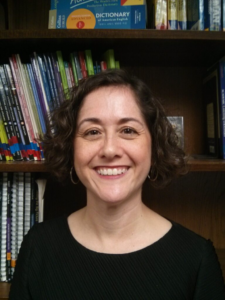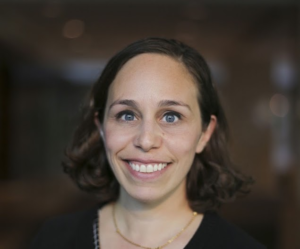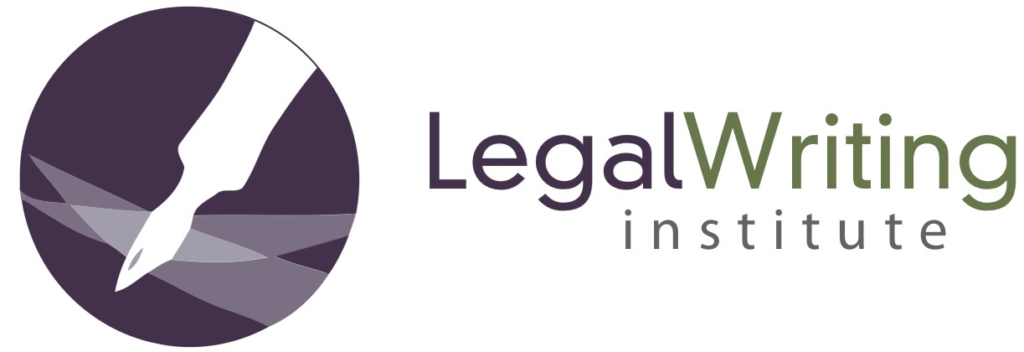Post by Prof. Stephen Horowitz, Legal English Lecturer.

Congratulations to Georgetown Legal English faculty members Profs. Julie Lake and Heather Weger, who both teach in Georgetown’s unique Two-Year LLM program, for being awarded a Teaching Grant by the Association of Legal Writing Directors (ALWD) for their grant proposal titled, “An Innovative Approach to Strengthen Multilingual Student Voices and Autonomy in Legal Writing Classes”!


Georgetown Legal English faculty member Prof. Stephen Horowitz (who also teaches in the Two-Year LLM Program) previously received an ALWD Teaching Grant in 2023 for his proposal (with Prof. Daniel Edelson of Seton Hall Law) to create a self-guided online legal writing course that would make legal writing instruction easily available to students in anywhere in the world at no cost and on their own schedule. (The course–Essential US Legal Writing for International Law Students & Attorneys–has since been made available to Ukrainian law schools and to Afghan judges and lawyers connected with the ABA Afghan Legal Professionals Scholarship & Mentoring Pilot Program.)
Below is Lake and Weger’s innovative proposal:
*************************************
“An Innovative Approach to Strengthen Multilingual Student Voices and Autonomy in Legal Writing Classes”
Summary: For our teaching idea, we will develop a pedagogical sequence (with tasks and materials) that empower multilingual students, arguably a marginalized sector of law school, to assess and revise their writing using an asset-based lens.

Rationale: Over the past 10 years, as we have taught legal writing to multilingual students in law school, we have seen how these writers are decentered as they navigate their educational experience. This led us to reflect on our teaching practices in our legal writing courses, resulting in several pedagogical shifts aligned with asset-based principles (MacSwan, 2020) that foster a sense of belonging and inclusivity for multilingual (and monolingual) students. The next step is to create a pedagogical process that empowers students to take charge of their legal writing experience and develop their legal writing voice.
Becoming an autonomous writer with a clearly defined individual “voice” (Lancaster, 2019; Matsuda & Tardy, 2007) can be challenging for any novice legal writer and doubly-challenging for multilingual writers. The first step toward developing one’s voice is for emerging writers to develop the ability to analyze their own written texts (Teng, 2020).
Yet, in our legal writing courses, we have noticed that multilingual students often struggle to critically engage with writing in their non-dominant language; instead, they look to teachers to “correct” their written texts.
To help learners overcome this dependency and develop their legal writing voice, we want to transform traditional standard-based pedagogy (Cox, Malone, & Winke, 2018) into asset-based pedagogy (Lubbe & Eloff, 2004) as we design a pedagogical sequence that encourages learners to take charge of their legal writing process.
Teaching idea: We will develop a pedagogical sequence with tasks and materials that relies on an asset-based pedagogy (e.g., MacSwan, 2020) for teaching writing to multilingual law students (our population.)
******************************
And here is the official email announcement from ALWD:

Congratulations to ALWD Teaching Grants Recipients
Dear Colleagues:
The ALWD Board and Teaching Grants Committee congratulate the recipients of our 2024 grants! Thank you to all who submitted proposals, and we look forward to the results of the grants, as summarized below.
Aysha Ames (Fordham University School of Law) proposed “Counter Story: Using `Outsider’ Narratives to Tell Complete Stories.” Aysha will “create a two-credit upper-level legal writing course on counter storytelling with the goal of centering non-dominant narratives in the law. Counter storytelling creates space for untold narratives and truths from ‘outsiders.'”
Stephanie Der (LMU Loyola Law School-Los Angeles) proposed “Rethinking the Legal Research Process in Light of Generative AI.” Stephanie will “draft proposed guidelines on how to shift the way we teach the legal research process to optimize the benefits of AI while alerting students to its limitations” and “support these guidelines with research exercises aimed at helping students to understand when and how to use Lexis AI and Westlaw AI.”
Julie Lake (Georgetown University Law Center) and Heather Weger (Georgetown University Law Center) proposed “An Innovative Approach to Strengthen Multilingual Student Voices and Autonomy in Legal Writing Classes.” They will develop teaching materials that “empower multilingual students, arguably a marginalized sector of law school, to assess and revise their writing using an asset-based lens.”
Bryan Schwartz (University of Arizona Rogers College of Law) proposed “Advanced Lawyering Skills for the NextGen Bar & Future Criminal Practitioner” and will develop “writing projects and simulation exercises aimed at testing and reinforcing the first-year legal writing concepts as well as the foundational lawyering skills likely to be tested by the NextGen Bar Performance Tasks.”
Carolyn Williams (University of North Dakota School of Law) proposed “Team-Based Learning Study Guides and Readiness Assessment Quizzes.” Carolyn will rewrite Study Guides and Readiness Assessment Quizzes for updated material for team-based learning.
Also, the ALWD website has material from recently completed grants. ReviewVeronica Finkelstein‘s (Wilmington University School of Law) case file for an employment discrimination claim stemming from a legal associate’s encounter with bias. Or view screenshots from Stephen Horowitz (Georgetown University Law Center) and Daniel Edelson‘s (Seton Hall University School of Law) free online course for teaching legal English to non-native speakers.
Thank you,
The 2024 ALWD Teaching Grants Committee
Aliza Milner (Syracuse University College of Law) & Emily Zimmerman (Drexel University Kline School of Law), co-chairs; Rachel Goldberg (Cornell Law School); Ann Killenbeck (University of Arkansas School of Law); Megan McAlpin (University of Oregon School of Law); Jonathan Moore (University of Akron School of Law); Sarah Ricks (Rutgers Law School-Camden); Catherine Wasson (Elon University School of Law)
